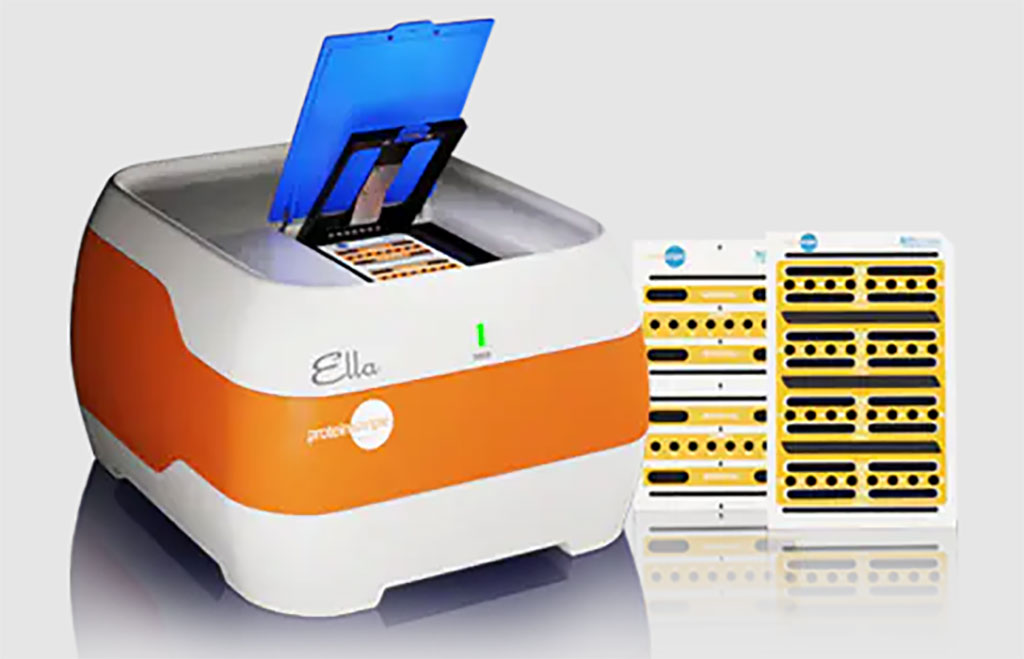Cytokine Signature Identifies COVID-19 Patients With Worst Prognosis
Posted on 27 Apr 2022
An overreaction of the immune system, in which excessive levels of proteins called cytokines produce damaging levels of inflammation, can lead to organ failure and death in COVID-19 patients.
It isn’t known, however, which cytokines drive the process. The ability to measure levels of these cytokines when patients are admitted to the hospital would allow those with the worst prognosis to be identified and their therapy personalized.

Laboratory Medicine specialists at the Azienda Sanitaria Universitaria Friuli Centrale (Udine, Italy) carried out a retrospective study of 415 patients (65.5% male) hospitalized with COVID-19 between May 2020 and March 2021. The cohort included patients with disease of all levels of severity. The patients, who had an average age of 70 years, were classified as having mild/moderate disease or severe/critical disease, according to the World Health Organisation definition. Death occurred in 15.7% of the patients who died in hospital and 23.6% had a negative outcome (orotracheal intubation and/or death).
Serum levels of a large panel of cytokines were measured on admission and compared against outcomes, in combination with other biomarkers such as C-reactive protein (CRP) and mid regional pro-adrenomedullin (MR-proADM). MR-proADM plasma concentrations were measured in an automated Kryptor analyzer, using TRACE technology (Kryptor; BRAHMS, Hennigsdorf, Germany). Cytokines were measured by microfluidic ultrasensitive ELISA using the Protein simple plex technology on an Ella Automated Immunoassay System instrument (R&D Systems, Minneapolis, MN, USA).
The team was able to build a decision tree that allowed them to predict those at risk of a negative outcome, based on the levels of the cytokines and other biomarkers in their blood. This first split patients into two groups, based on their IL-6 levels, before using their levels of IL-10, MR-proADM, sIL2Ra, IP10, and CRP to determine whether they were at risk of a negative outcome.
The analysis also revealed that high levels of interferon (IFN)-γ inducible protein (IP-10) on admission can signal an excessive immune response that may lead to the patient developing lung fibrosis and needing intubation. A further finding was that high levels of IL-6, a pro-inflammatory cytokine, can be accompanied by elevated levels of sIL2Ra and IL-10, which have an anti-inflammatory role. This is important, because in such cases, the immunosuppressive drugs normally used to treat severe COVID could do more harm than good.
Emanuela Sozio, MD, an Infectious Disease specialist and lead author of the study, said, “It is not always possible to determine which COVID-19 patients have the worst prognosis, especially early on. It is becoming increasingly clear, however, that the earlier we treat excessive inflammation, the more likely we are to turn it off quickly and definitively and so avoid irreversible organ damage. Our work may help select patients with worse prognoses that need to be admitted to high dependency units, as well as potentially help personalize their treatment.” The study was presented at the European Congress of Clinical Microbiology & Infectious Diseases (ECCMID), held in Lisbon, Portugal, 23-26 April, 2022.
Related Links:
Azienda Sanitaria Universitaria Friuli Centrale
BRAHMS
R&D Systems













